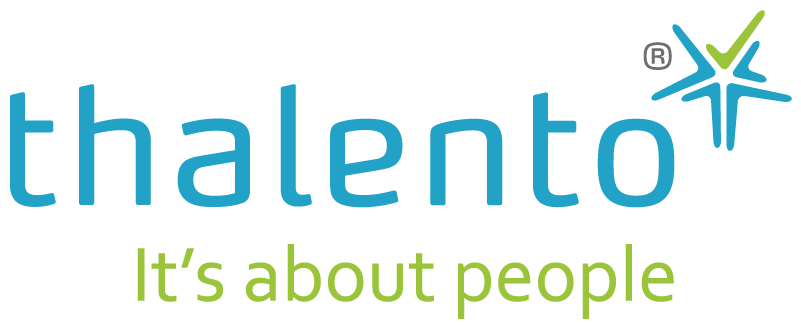Interview Ben Greeven Datanews
"If HR-departments do not embrace IT in the near future, it could be that others will do it for them.", warns Ben Greeven, CEO of Thalento®. “No, the HR-manager does not need to become an IT-manager, but it is clear that he’d better embrace technology”, opens Ben Greeven. Greeven is the CEO of Thalento®: a Belgian company specialized in e-Assessment & Talent Management solutions.
Of course, that sounds like preaching to the converted. “But times have indeed changed and HR is now really catching up in terms of digital tools that the department uses and needs”, says Greeven. “When we started our company seven years ago, we only saw tools that were very poorly developed, that were really IT oriented and could barely be used by HR services.
That’s the reason why we decided at that time to build our own measurement tool. Now you notice that there is an incredible dynamism in the world where HR and IT meet each other. You can literally feel that the market is about to explode”, tells Greeven enthusiastically.
The big ones interfere
The Thalento® solution offers in essence a complete portfolio of e-Assessments and Talent Management which is offered to the HR departments of companies under the form of software-as-a-service (SaaS). The product exists already in 20 languages, plus 16 varieties of English and 14 versions of French. “That diversification is essential to make the psychometric tests really valuable”, says Greeven.
But in addition, it is also possible to make the difference with the American players on the market. “This way, we can certainly stop the Americans in Europe, but the language advantage is not going to remain forever”, thinks Greeven. Most certainly not now that the big IT players are interfering more and more with HR information systems, HR tools, analytics and assessment tools. “SAP has bought SuccessFactors. CornerStone OnDemand is distributed by SD Worx. WorkDay is available. Oracle has already done a lot of acquisitions in this area. Just to say that the big American companies are already present on our market. It is just a matter of time before they reach enough scale over here”, according to Greeven.
Outside Belgium
Thalento® expects to close this financial year just below a million euro turnover. Large Belgian customers include KBC that since four years evaluates all applicants with the cognitive tests via a customized web based platform, Corelio, Kinepolis and recently Cipal. Depending on the wishes of the customer – whether he considers employer branding important or not – the solution can be developed fully tailored to the customer, or offered ‘off the shelf’.
But the multitude of languages reveals that Thalento® also thinks beyond our borders. “Next year we would like to serve 20 European countries, and afterwards, I will definitely go to the States”, says Greeven. In the longer term – in 2015 – Chinese is considered. “It will also be a cultural change, which will force us to adapt a lot of codes.” Thalento® tries to make the difference by offering the most accurate information possible in the most optimal way. Speed and precision are important factors. But isn’t the reliability of traditional assessments higher than the one of e-Assessments? “Perhaps, yes. But the reliability of assessments is only higher if they are performed in a correct way. In addition, there is the risk of human errors. A digital system doesn’t make any mistakes, results are immediately available and a fraction cheaper. The question the HR manager has to consider is whether he wants or can pay much more for that little extra percentage of reliability?”
Consolidation rages
It is clear for Greeven that there is also a real consolidation battle going on in the world in which HR tools are more and more integrated into the traditional ERP and IT systems of a company. “A lot of small and start-up companies – mainly form the United States – are active in this world. All are strong in their own specific niche, for example in the domain of screening, the use of video, and so on. What you see now is that those tools are more and more converting with each other, data is linked and exchanged, and everybody starts to share information”, explains Greeven. And so we come to the buzz word of the moment: Big Data.
“Current technology really allows you to make faster data analysis than before, for sure if all data is linked”, tells Greeven who gives an example. “FairSale is a HR-package that runs on SalesForce.com. It combines sales data and performance data, but later also people data. The final result is a report that says that a particular seller performed less and links this to his personality, competencies and historical data”, according to Greeven.
The next step is that the data is then effectively used to compose a new sales team, maximizing the possibility to have a team that performs optimally. “Most HR systems are still reporting what happens on the basis of historical data. But we have ‘why’-data. As we know who is part of that team, we can explain why a result is not achieved. If these ‘why’ data are efficiently linked to ‘what’ data, you can predict”, concludes Greeven. Or how big data, HR analytics and talent analytics also are about to change the role of the Human Resources manager dramatically. For example, suppose that an organization takes over a company and must downsize. Analysis tools can then take substantiated decisions. Or also: improving retention and keep good talent within the company.
“But anyway, all these systems cannot demand too much technical knowledge of HR managers, because, after all, they are primarily working with ‘people’. User-friendliness is equally important and is still the biggest challenge for most players. But everyone agrees that it’s going to happen”, concludes the CEO of Thalento®.
Text: Kristof Van der Stadt
This translation is based on the Dutch article published on 22-11-2013 in Datanews - Working in ICT Guide

